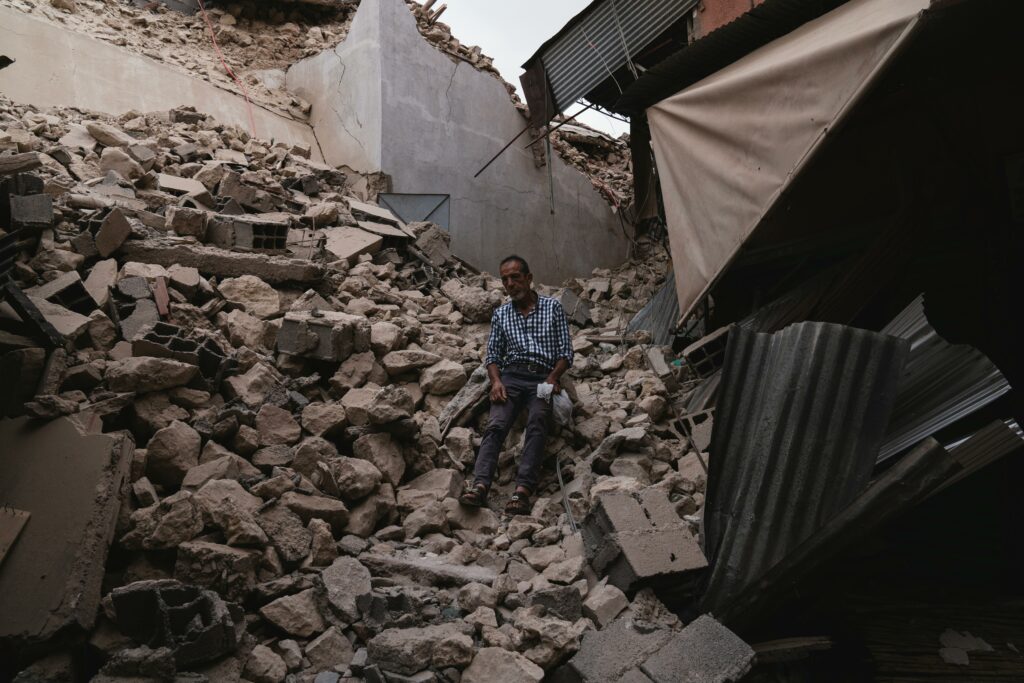
Raúl Zibechi
The current dreadful situation of wars, genocides and crimes against peoples threatens to spill over and escalate into generalized conflicts with an unpredictable but surely catastrophic end. The gravity of what we are living imposes on us questions that often have no answers, because of the difficulty of finding arguments or simply because they would be too devastating.
How is it possible that the Western elites, and a good part of the population, continue with their plans of domination and destruction to maintain their power, without caring about the life of other beings or the survival of the planet? How has this situation of absolute and blind insensitivity come about?
I understand that from critical thinking and resistance we do not have comprehensive and complete answers, that we must approach from different necessarily partial points of view in order to try to achieve a vision of the whole, adding parts to the hieroglyphic of the complexity implied by the civilizational crisis. Michael Brenner, professor of international affairs at the University of Pittsburgh, published the essay “The West’s Reckoning?” (scheerpost.com, 8/3/24), in which he addresses aspects of the ongoing crisis. On the Western defeat in Ukraine and the genocide in Palestine, he says: “The former is humiliating, the other shameful. However, they feel neither humiliation nor shame.” He asserts that such feelings are “alien” to the ruling elites because of their arrogance and “deep-seated insecurities.”
Brenner argues that those who govern are frightened, exhibit “panic behavior” and do not have “the courage to face reality head on.” Consequently, their behavior becomes irresponsible, grotesque and dangerous, because they have become detached from reality and are immune to changes in the world, generating irrational behavior.
He goes further by stressing that the West is heading towards a “collective suicide,” as a consequence of a triple harakiri: moral, diplomatic and economic. But most importantly, he adds that self-destruction “occurs in the absence of any major trauma, external or internal.” How can such a lack of sensitivity be explained?
Nihilism and narcissism would be two hallmarks of the West, Brenner continues in a later interview, “The real reason why the West is doomed” (https://acortar.link/cshyfe). Both terms allude to situations in which one ceases to act according to norms and values, leading individuals and collectives to react in an uncontrolled way, driven by immediate and capricious desires that, in an extreme, lead to self-destruction.
The reasons why there are no feelings of guilt or shame are almost inexplicable for Brenner, because they prevent the modification of attitudes in the face of imminent catastrophes that will destroy them. The author rehearses an answer: “This is something that can only exist if we are subjectively part of a social group in which personal status and sense of worth depend on how others see us and whether they respect us.”
The question of belonging to a community plays a decisive role in this reality that is imposed on us. Without community, without social ties, we lose ourselves, we are left in the hands of our demons, because it is belonging to a human collective, in general, that tells us who we are, places limits on us and imposes values and behaviors.
Capitalism has specialized in destroying and discrediting everything that smells of community. It spreads the idea that all belonging limits us, that we must fly away in solitude. The mere word “limits” has a terrible reputation in this senile stage of capitalism, since the rupture of the social bond is vital for capital. The loneliness of the individual is easy prey to the fear instilled by the system to break us.
Capitalism has specialized in destroying and discrediting everything that smells of community. It spreads the idea that all belonging limits us, that we must fly away in solitude. The mere word “limits” has a terrible reputation in this senile stage of capitalism, since the rupture of the social bond is vital for capital. The loneliness of the individual is easy prey to the fear instilled by the system to break us.
But the system has also created and multiplied a type of person who is capable of murdering and raping without remorse, as we see in the narco and paramilitary gangs, among other possible examples. Men who are capable of atrocious crimes, using chainsaws against their fellow men, like the Colombian paracos or the Mexican narcos who dismember their victims.
Gaza and Ayotzinapa are among us every day, every day, because the system has created the perpetrators and feeds them with its inverted scale of values, in which anything goes to win.
From the side of the movements, we must understand that resistance to the system and the monstrous perpetrators becomes impossible in the absence of solid social relations. That is why we need to defend the common and communal, to hold on to the land and the environment that sustains us, to make the territories spaces of resistance and creation of the new.
Original text published in La Jornada on April 5th, 2024.
Translation by Schools for Chiapas.
